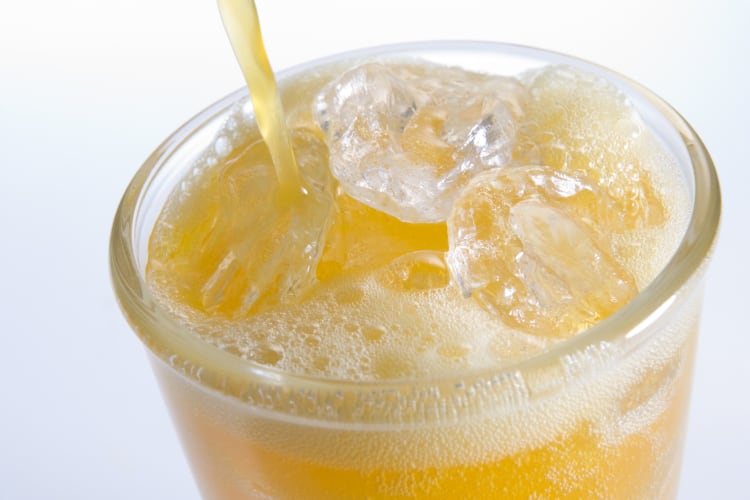Givaudan has developed a reformulation technique focusing on the overall satisfaction of a product – as the flavour giant puts it ‘the pleasure it creates for the consumer’ – known as the Overall Holistic Rating (OHR). “When a consumer eats or drinks a product, they rarely dissect their experience but will instead have an overall impression of whether it was pleasurable or not,” explained Guillaume Blancher, Global Product Manager for Sweet Taste at Givaudan. “Holistic profiling captures the bigger picture by examining the food or beverage experience in its entirety.”
Using Givaudan’s trademarked Sense It sensory language, five attributes are used to ‘decode’ this experience. ‘Impact’ measures the intensity of the first impression; ‘complexity’ indicates how layered a flavour is.; ‘balanced’ examines whether the layers are proportional to each other; ‘integrated’ determines whether the attributes are in harmony; and ‘longevity’ considers how long the experience lasts.
Holistic profiling is quite distinct from traditional approaches to sugar reduction that ‘look to match the taste of sugar’ especially when it comes to intensity, Blancher told FoodNavigator. “Standard approaches to sugar reduction look to match the taste of sugar, especially when it comes to intensity… Holistic profiling differs from standard approaches as it is not focused on replacing the sugar experience, but on creating a new product that is equally or better liked than the full sugar version, by using natural flavours and much less sugar, or a combination of natural flavours and sweeteners.”
This means that Givaudan flavour scientists are moving beyond a focus on the intensity of individual product attributes by modelling the overall product experience ‘as perceived by typical consumers’. The five holistic ‘attributes’ - impact, complexity, balanced, integrated and longevity - align with key factors that influence a consumer's perception of a food or beverage, collectively defining the overall sensory experience. The Overall Holistic Rating (OHR) is then calculated from panel scores of the holistic attributes, reflecting a general rating for the consumer perception of the product.
“Holistic profiling is an excellent tool to include in complete flavour design, as Givaudan’s approach to developing products containing much less sugar, is by using only flavours. In this approach, the sweetness intensity is no longer the sole benchmark for success. Instead, the sensory team takes the holistic experience of the consumer into account to create a new product, and a new experience that is preferred by consumers,” Blancher maintained.

Don't replace the sugar experience
Decoupling reformulation efforts from a perceived need to replicate the taste and functional properties provided by sugar in the original recipe unlocks new possibilities for product development. “Holistic profiling is not about replacing the sugar experience but creating a new formulation that is equally or better liked than the full sugar version. This is quite a radical approach as it can create products that are not trying to replicate exactly the sugar experience, and may taste different, but have the same OHR from consumers.”
While the reformulated product might be quite different from the original full-sugar version, Blancher stressed the critical point is that the new formulation will be equally – or more – appealing to consumers.
“The end products and full sugar product will have an identical Overall Holistic Rating, even though they taste different. By quantifying holistic attributes with specially trained panels, Givaudan’s sensory scientists are able to ‘preview’ consumer perceptions of a product. In this way, they can provide insight and help predict outcomes relating to consumer acceptance, liking and preference in sugar reduced products.”
But does it work? The approach has met early success, Givaudan’s Sweet Taste Product Manager revealed, developing products with more than 50% less sugar that are ‘sometimes preferred over the full sugar version’.
For example, he detailed: “There’s an anonymised case study of a 50% sugar reduction achieved in an orange carbonated drink using only natural flavours... Givaudan’s application experts worked to develop an orange carbonated soft drink (CSD) that is equal in consumers’ eyes (and taste buds) to its full sugar counterparts while cutting the sugar in half (from 10 to 5 brix).”
This was achieved by using natural flavours to enhance other qualities of the low sugar product – things like mouthfeel, richness and juiciness. “The holistic qualities of the full sugar beverage decrease when sugar is substantially reduced, but by using a combination of ingredients to rebuild important holistic attributes in the product, flavourists were able to restore the complexity, balance and integrated attributes to the same level as the full sugar version.”
While the resulting CSD was not as sweet, having less sweet ‘impact’ compared to the full sugar beverage, it was ‘equally satisfying’ to the tasters. This result was consistent with the Overall Holistic Rating calculation for the reformulated beverage and was statistically equivalent to the full sugar beverage, we were told.

‘Sweetness is not the only driver of liking’
The flavour expert believes this tactic is in-line with consumer expectations, which he characterised as moving away from seeking sweetness and towards more complex taste sensations. This is particularly the case for the much sought-after millennial and Gen Z demographics. “We know younger generations are less interested in highly sweetened products and more accepting of new tastes and experiences,” Blancher observed.
“There is an untapped potential to deliver better tasting products to consumers and provide alternatives to historically overly sweet, unbalanced products. Many consumers desire lighter, more refreshing taste experiences,” the flavour expert maintained. To support this observation, Blancher pointed to Givaudan proprietary research demonstrating 54% of Americans and 47% of Latin Americans said there are products on the market that they would prefer if they were less sweet, while 55% of French consumers found a typical 10 brix juice drink ‘too sweet’. “Given these trends, you might wonder why there aren’t more ‘less sweet’ products on the market. The challenge lies in the fact that consumers notice more than just a lack of sweetness when sugar is reduced. Givaudan’s approach can reduce sugar in products by up to 50%, while bringing them closer to their full sugar equivalent, naturally and without added sweeteners. Great taste doesn’t necessarily require a lot of sugar, because sweetness is not the only driver of liking.”
Results from six different countries and 15 data sets using a 'wide array' of food and beverage applications have shown a 'strong correlation' between holistic profiling and consumer acceptance. “We believe that Holistic Profiling may prove to be a game changer, allowing manufacturers to successfully develop ‘better for you’ food and beverage experiences that still provide great consumer satisfaction,” he predicted.
Blancher believes holistic profiling can accelerate product development and bring more low sugar options to market.
“This type of approach is best suited for new products, rather than as a way of matching an existing product. When developing a new product, Givaudan can work in a holistic manner, considering the contribution of the application’s base ingredients with the flavour, creating a unique and satisfying experience for consumers. This goes well beyond sweet intensity and many other dimensions must be taken into consideration.”

